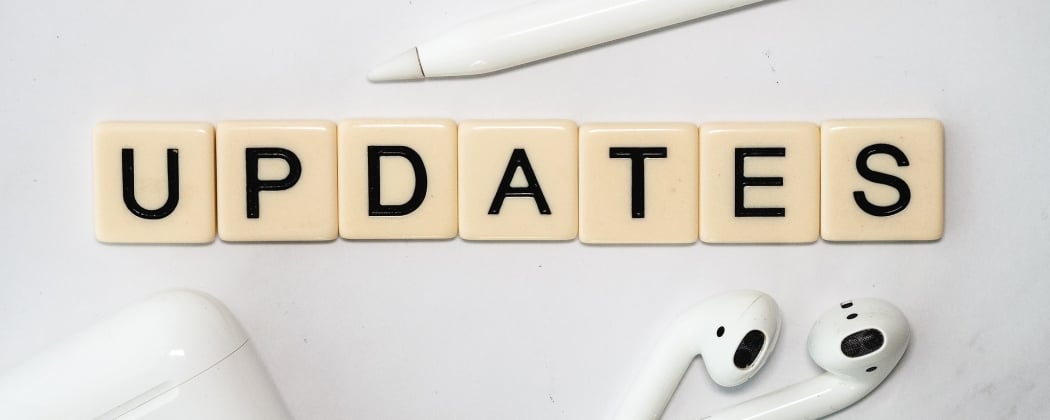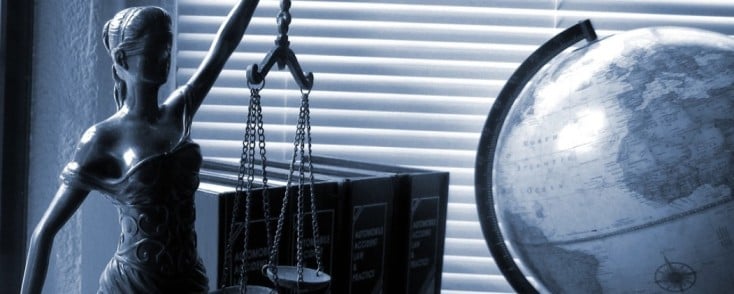This month
- ICC annual report
- Commemorating the Nuremberg trials
- Rethinking the crime of genocide
- Vulnerable situations
- Webinars
ICC annual report
On 2 November 2020, the President of the International Criminal Court (ICC) addressed the United Nations (UN) General Assembly. He presented the Court’s annual report, which details its activities, ongoing cases, key judicial decisions and reparations processes.
- one accused was sentenced during the reporting period
- the hearings in one trial were brought to conclusion
- one trial commenced
- charges were confirmed against two accused
- one suspect, whose first arrest warrant had been outstanding for more than 13 years, was transferred to the Court
- two new investigations were authorized
- the Prosecutor received a referral of one new situation.
Reflecting on the 75th anniversary of the United Nations, the President recalled that while the UN and the ICC have different mandates, “the need for both institutions originated directly from the horrors of the Second World War,” and that both institutions shared a common mission: “to achieve a world free of violence and conflict – with human rights for all”. “That is the future that the ICC strives to foster. It is the future that assures that there will be accountability through the rule of law, justice for victims- when atrocities that shock the conscience of humanity have been committed; thereby contributing to the prevention of those kinds of atrocities.”
The president recalled further that the ICC “embodies the pledge of ‘never again’ – to atrocities and gross human rights violations that bear out the human capacity for evil”.
Referring to attacks against the ICC, the president said: “Ironically, these are an emblematic demonstration of the Court’s value for humanity. That resistance shows that the Court is making a difference. It shows that the Court cannot be ignored by those who may, at the very least, see some geo-political interest in the preference to leave innocent victims at the mercy of heinous crimes”.
International criminal justice: 75 years after Nuremberg
On 20 November 2020, the world commemorated the 75th anniversary of the commencement of the so-called Nuremberg trials. Here, for the first time, the world held to account those responsible for core international crimes, such as crimes against humanity and genocide.
Rethinking the crime of genocide
Philippe Sands is professor of Law and author of the book East-West Street on the origins of the crime of genocide and crimes against humanity and genocide. In a video address he marked the seventy-fifth anniversary of the crime of genocide and drew attention to some negative effects related to this crime:
- It is a crime that is very difficult to prove;
- It does not cover all groups (such as those based on sexual orientation or political affiliation);
- With the perception of the “crime of crimes”, it has unintentionally relegated other crimes, including war crimes and crimes against humanity, to a less serious position.
Although fully committed and convinced of the necessity to have the crime of genocide, he poses the following questions:
- What is the social utility of having such a hierarchy of crimes;
- Why may we commemorate the killing of 8,000 Muslim men at Srebrenica as a crime of genocide, but pass in silence on the deaths of perhaps up to three million people in the Democratic Republic of the Congo (DRC) at around the same time.
He then concludes by saying we may need to rethink genocide, to find a way to integrate the crimes of genocide and crimes against humanity. We need to make genocide less exceptional so as to make crimes against humanity and war crimes as serious as they truly are.
Belarus
The crackdown on the demonstrators in Belarus has become more robust and lost much of its international attention. On 6 November 2020 the European Union nevertheless expanded its sanctions by targetting an additional number of 15 officials, bringing the total to 59 sanctioned officials. Meanwhile, the election monitoring organisation OSCE has concluded that:
- The findings are very clear;
- With regard to the question of “election fraud” the rapporteur comes to the conclusion that there were evident shortcomings of the presidential elections which did not meet the basic requirements established;
- The observations by local monitoring organizations and citizens, as well as international observers with good reasons found the presidential election fell short
of fulfilling the basic international requirements for genuine elections; - Accordingly, the allegations that the presidential elections were not transparent, free or fair were found confirmed;
- Regarding the allegations related to major human rights abuses, they were found to be massive and systematic and proven beyond doubt;
- It is particularly worrying that the well-documented cases of torture and ill-treatment in the crackdown by the security forces on political dissent have not, as yet,
resulted in anybody being held accountable, which confirms allegations of general impunity, also due to the absence of fair trials in political cases.
Ethiopia
Early november, the prime minister of Ethiopia ordered the Ethiopian Defence Forces to engage with the Tigray Regional Paramilitary Police and militia loyal to the Tigray People Liberation Front (TPLF).
According to numerous sources and witnesses, amongst which Amnetsy International, it is believed that in the night of 9 November 2020 scores, and likely hundreds, of people were stabbed or hacked to death in Mai-Kadra (May Cadera) town in the South West Zone of Ethiopia’s Tigray Region.
The victims are probably civilians, that were in no way involved in the ongoing armed conflict. They have most probably been targeted by forces loyal to the TPLF.
According to UNHCR, some 7000 civilians are believed to have fled the region.
Mozambique
On 7 November 2020 islamist militants carried out an attack on the village of Nanjaba in Cabo Delgado province. They opened fire on the village and set fire to dwellings. Two people were beheaded and six women kidnapped in the attack, while an additional number of three people were killed in a similar attack on the village of Napala on the same night. The militants claimed to occupy several villages, including Muatide, where there are reports that around 50 people have been beheaded as the football field has been turned into a killing field.
During 2020 , the Cabo Delgado province has witnessed increased activity from islamist militants. At least 900 civilians have been killed, and at least 150,000 more have fled.
Nigeria
Webinars
Nuremberg Academy
The International Nuremberg Principles Academy has launched its Nuremberg Academy Lectures. On 24 November 20202, Professor Philippe Sands delivered the first lecture. The author of “East West Street: On the Origins of Genocide and Crimes against Humanity” talked about ‘International Justice and Personal Stories: From East West Street to The Ratline, and Beyond’ and discussed the origins of international criminal law in light of the 75th anniversary of the opening of the International Military Tribunal in Nuremberg and addressed contemporary developments of international criminal law.
States have a legal responsibility to provide effective penal sanctions for persons responsible for international crimes. This also entails an obligation to bring such persons to their own domestic courts or extradite such persons to other states that are able and willing to conduct trials. International criminal tribunals and courts are to be a last resort when states fail to meet these obligations. Even with the existence and availability of criminal proceedings at international level, the assumption is, and the practical circumstances require, that most cases will need to be adjudicated at domestic level.
The event covered experiences from Germany, Europol and the importance of cases beyond Europe. Also a research was made public: Investigation and Prosecution in Scandinavia of International Crimes.




